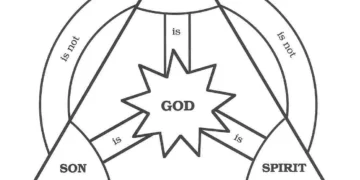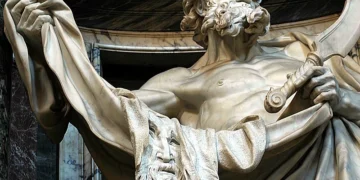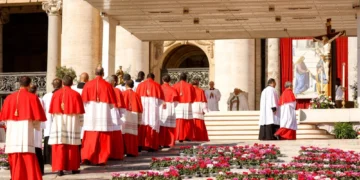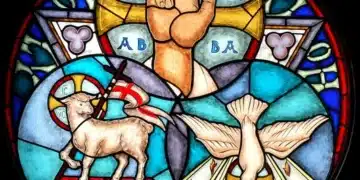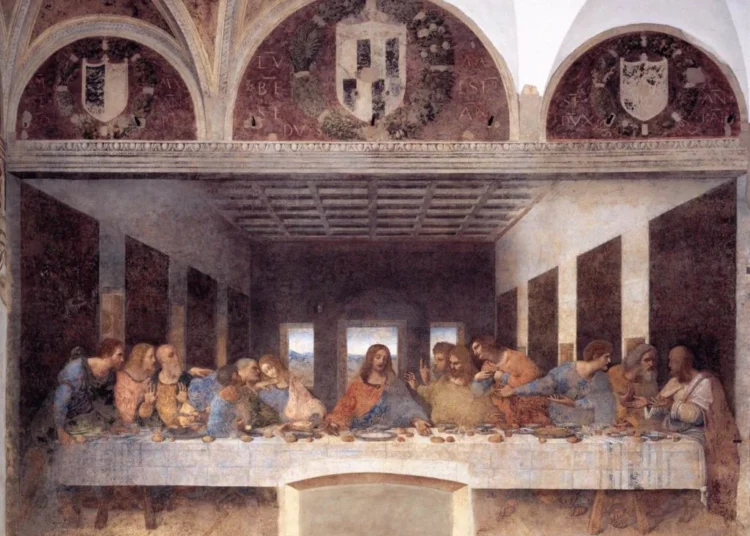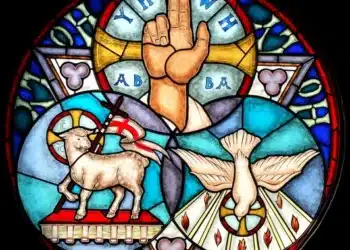The Eucharist holds a central position within the framework of Christian worship, serving as a sacrament of great significance. This article aims to explain what the Eucharist is and highlight its relevance and importance for Christians worldwide. Taking a neutral tone, we delve into its historical roots, theological underpinnings, and the multifaceted role it plays in the lives of believers.
Unveiling the Eucharist
The Eucharist, also referred to as Holy Communion, the Lord’s Supper, or the Mass, is a sacred ritual observed within various Christian denominations. It represents the commemoration and reenactment of the Last Supper, a significant event in the life of Jesus Christ.
During the Last Supper, Jesus shared bread and wine with his disciples, instructing them to do the same in his memory. Christians believe that the bread symbolizes Christ’s body, while the wine represents his blood. The act of partaking in the Eucharist is seen as a means of entering into communion with Christ and receiving spiritual nourishment.
Biblical Roots and Theological Significance
The Eucharist finds its foundation in the Gospels of the New Testament, where Christ’s institution of the sacrament is recorded. According to Christian belief, Jesus imbued the bread and wine with his presence, referring to them as his body and blood. This notion, commonly known as “transubstantiation” in Catholic theology, suggests a mystical transformation where the substance of the bread and wine becomes, in essence, the body and blood of Christ.
Relevance for Christians
For Christians, the Eucharist encompasses profound spiritual, communal, and theological dimensions. It serves as a symbol of unity, bringing believers together as one body in Christ. In partaking of the Eucharist, Christians affirm their identity as members of the faith community, sharing in the common belief and salvation offered by Christ.
Moreover, the Eucharist is regarded as a source of spiritual nourishment and sustenance for the Christian journey. It is believed that through participating in the Eucharistic ritual, individuals experience a deep connection with Christ, finding solace, strength, and transformation in his presence. This encounter with the divine is perceived as a means of grace, empowering believers to lead lives aligned with Christ’s teachings.
Beyond its personal significance, the Eucharist also carries a social dimension. Christians view it as a call to selfless service and love towards others, inspired by Christ’s act of washing his disciples’ feet during the Last Supper. In this sense, the Eucharistic celebration prompts believers to reflect on their responsibilities towards their fellow human beings, fostering acts of compassion, justice, and reconciliation within society.
Denominational Diversity
Although the Eucharist holds a central place in Christian worship, it is approached and understood differently across denominations. Various traditions diverge in their theological interpretations, liturgical practices, and frequency of celebration. Some denominations emphasize the sacramental nature of the Eucharist, while others perceive it as a symbolic representation. These nuances reflect the broad diversity within Christianity and its rich tapestry of theological perspectives.
A Cornerstone of Christian Faith
The Eucharist stands as a cornerstone of Christian faith and worship, uniting believers across time and cultures. It represents the commemoration of Christ’s sacrifice, offering spiritual nourishment and facilitating communion with the divine. Embracing diverse interpretations and practices, Christians adhere to the Eucharist as a testament of their identity, a source of grace, and an impetus for compassionate action in the world.













